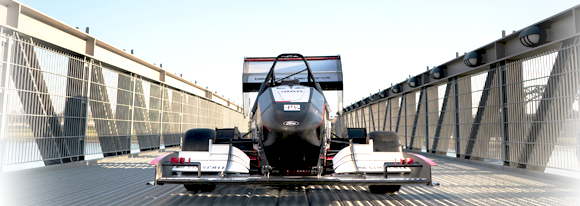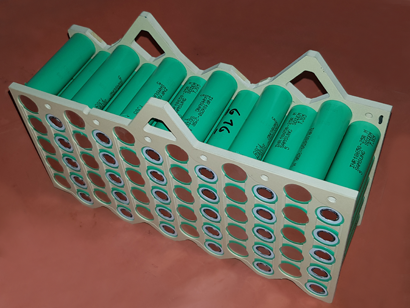
| DE | EN | Contact | About us | Terms of Business | Imprint | Privacy & Cookies | Help | Newsletter | Registration | Login | |
 |  |  |  |  |  |  |  |  |  |  |  |
| Home > News > Case Studies > Power Supplies > Schukat sponsors student racing team in Formula Student Electric | |||||||||||
Schukat sponsors student racing team in Formula Student ElectricHeading in the right direction with optimised charging technology
Supported by Schukat, the eMotorsports Team Cologne from the Cologne University of Applied Sciences (TH Köln) has given its Formula E racing car a considerable boost. A capacitor is a key component for the welding required to connect the rechargeable cells to their carrier assembly. Now, a powerful, lightweight charging technology accelerates the charging process for the batteries the team welds into place.BackgroundIn the Formula Student Electric (FSE) design competition, student teams from colleges and universities do all of the planning, development and construction of a 100% electric single-seater racing car. An independent jury judges the cars against a range of criteria, including driving characteristics (acceleration, braking behaviour, and handling), price, and reliability. The vehicles are also put to the test in practical disciplines on test tracks around the world. Other factors such as aesthetics, comfort, and the use of easily available, standard components increase the market value of the vehicle. In addition, each team is required to submit a concept, a cost report and a business plan that includes an overall strategy and marketing ideas. The winner is not the team with the fastest car, but the one with the best total package: construction, performance, financing, and sales planning. The cars are financed completely through sponsorship,
For a full, year-long racing season, the students put their studies on hold. Worldwide, around two hundred teams take part in the competition, which evolved from the Formula Student Combustion (FSC), a competition that began with combustion-engine cars. The problemTo weld the car’s rechargeable batteries to their purpose-built carrier assembly, the eMotorsports Team Cologne from the Cologne University of Applied Sciences needed a cell welding machine with very high capacitance. So they approached Schukat with their sponsorship request.
The solutionsSchukat backed the project in two stages: First, the company provided the student team with capacitors from manufacturer FTCap, which have a capacitance of approximately 2F. With these, the team built a cell welder to weld the round Li-ion rechargeable cells to a custom-built carrier assembly. In addition, the welding machine was made CNC-capable – during the forced racing break prompted by Corona.
Second, Schukat supported the team, as requested, with an advanced and powerful – but also compact and lightweight – charging technology for their home-made battery units (Fig. 2). These consist of standard, low-cost 2500mAh 18650 lithium-ion round cells that power four electric motors (one per wheel) via an inverter in the drivetrain.
To make the charging technology as easily portable as possible, it was to be installed in a trolley case that also held additional electronics (including additional power supplies such as the conduction-cooled Mean Well UHP-350-24 as an auxiliary power supply for extra peripheral devices). The very limited installation space meant using a compact charger, and due to the high packing density and despite fans to dissipate heat, it had to be efficient, with the lowest possible power loss. Other advantages of the CSP-3000-250 power supply• Can be operated as a stand-alone unit or in series or parallel configurations: As individual devices, the power supplies in the series deliver up to 3000W, and up to 9000W with three units connected in parallel, and offer the eMotorsports Team Cologne the option for even higher charging voltages in upcoming re-designs
eMotorsports CologneStudents at the TH Köln have been constructing purely electrically powered racing cars since 2009, further developing the work and knowledge of the last "internal combustion team” of 2008. At the start, only a handful of students set off with this idea on the challenging journey. Today, the team comprises more than 20 members each season, who come together from different courses of study and organize themselves to build racing cars for Formula Student competitions. Driven by leading-edge innovation and dedication, continuous development in all areas of the car has been achieved year after year. Schukat electronicAs a distributor, we provide fast, competent support with direct contact persons and provide an expert field service team for on-site problem solving. Customers benefit from rapid processing of enquiries, provision of data sheets and samples, and variable delivery quantities – from samples to series production.
|
|

